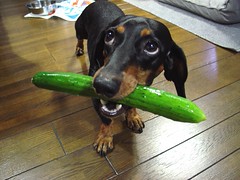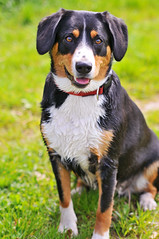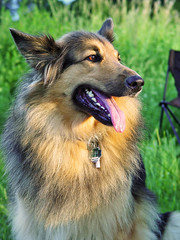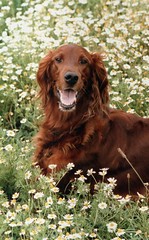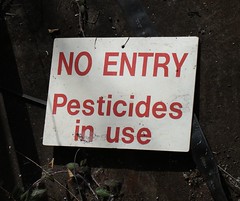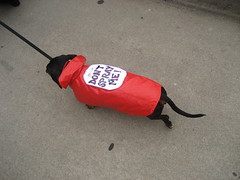Give me your tired, your poor, your hungry – Why tethered dogs need your help!
September 10th, 2009Sometimes I get so caught up in my little world of very well treated dogs that I tend to forget about all the ones out there suffering. In Washington we are being given an opportunity to make a difference for those who don’t have the wonderful lives of the animals I know.
Thank you Margo for bringing this to my attention.
Washington state is considering an ordinance which would make it illegal to leave your dog chained outside continually. Here is a detailed article from the Seattle P-I written when the last ordinance in King County was going up for a vote, Law would prohibit pet owners from continuously confining dogs. This time we are trying to get this passed as a law for all of Washington State as there is nothing within the law to help these poor animals which are left on the end of a chain for their whole lives being denied the love and family they long for. Not only is this a sad and horrible life for these dogs but chained dogs tend to have more issues with aggression and are more likely to bite and harm children and other people. In fact there is a group called Mothers against dog chaining dedicated to this issue.
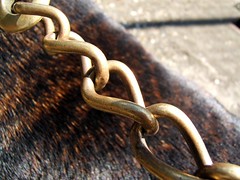 Here is a wonderful explanation by Cesar Milan on why dogs should not be tethered.
Here is a wonderful explanation by Cesar Milan on why dogs should not be tethered.
Here is the full text of the bill.
If you are in Washington state please take a moment to contact your legislator . To find you legislator, please visit find your legislator. If you are not in Washington state consider contacting your local government to see if they will address this issue in your area.
Here is a copy of the letter Margo wrote addressing some of the horrible situations she has seen in her work with animals.
Dear legislator,
First, I would like to thank you for taking the time to consider this
important issue.
Chaining a dog as a way of life is both cruel to the animal and dangerous to
humans, especially children. The dog most likely to attack and seriously
injure or kill a child is a chained, un-neutered male. For more on this,
please go to http://www.mothersagainstdogchaining.org/
As someone who has observed and tried to help a number of chained dogs over
the years, I can say I have yet to see a chained dog that has adequate food,
water, shelter or a remotely clean living area, let alone socialization,
exercise or vet care. Many dogs suffer profound neck injuries and even death
when embedded chains finally sever their windpipe. Most people seem to think
their dogs are somehow weatherproof as well.
Just a few examples of what I¹ve seen personally:
A young boxer who was chained because the owner said she jumped on his two
year old son. Inadequate food, water, shelter and feces everywhere. She was
kept out in sub-freezing weather, and you could see her visibly shivering.
A pit bull chained to a tree with no food, no water and no shelter. The
chain was so heavy she could only move her eyes.
Two pit bulls at another house, one chained to the front step, and another
chained to a doghouse in the backyard. There was so much mud, the dog
refused to leave the doghouse. Both were on extremely heavy chains.
A husky-cattle dog who was chained to a tree, and wrapped himself up so
tight he couldn’t move. The owner said,” Yeah, he does that.” Dirty water, no
food, and he couldn’t even get to his doghouse.
The German Shepherd whose owner would walk out the back porch and throw raw
hamburger into the dirt. The police ended up shooting and killing the dog.
The Saint Bernard who simply laid on his side in the dirt, never moving, the
picture of utter hopelessness and defeat.
The people who were in the P-I article earlier this year never cease to
amaze me, either.
The woman in Snoqualmie who got herself a young, high energy spaniel-lab,
which she sentenced to living on a chain because he’s hyperactive.
The couple in Maple Valley whose yellow lab is chained because he’s not
housebroken and he sheds. They refuse to re-home him.
The dog in Rainier Valley who is occasionally fed rice and has been chained
the last five years.
The fourteen year old husky mix who has probably been chained to that fence
in Enumclaw his entire life. His crime? He runs away.
All these people have abdicated their responsibility to properly exercise
and train their animals. It is simply easier to chain them and forget about
them, while blaming the animal for the problem(s) the human has created.
The man and his son in Maple Valley who are training attack dogs. The photo
showed a young pit bull in a plywood shack of a doghouse. They did have
enough money to crop the dog’s ears, however. (I’m giving them the benefit
of the doubt that they didn’t do it themselves with no anesthesia and a pair
of scissors).
The breeders and others who will yell and scream at you that it’s their
right to chain their dogs are merely keeping them as cheaply as possible
until they sell them and make a quick buck. They are no better than puppy
millers in the sense that they don’t care one iota about the well being of
the dogs, nor do they consider the possible damage the animal could do
if/when the dog becomes aggressive due to being kept chained and
Un-socialized.
I hope you will pass a real anti-chaining ordinance in the near future that
has, pardon the pun, teeth.
Sincerely,
Margo W.
West Seattle
 My friend Rose just emailed to let me know that she still has openings in her Level 1 Reiki class offered on September 11 and 12th. Rose is an incredible reiki practitioner and has worked on three of my cats, one of my dogs and me. I always was a little skeptical about reiki before meeting Rose, not because I didn’t believe in energy work but because I had meet some practitioners who I wouldn’t want anywhere near me or my patients. Rose changed my mind about all of that.
My friend Rose just emailed to let me know that she still has openings in her Level 1 Reiki class offered on September 11 and 12th. Rose is an incredible reiki practitioner and has worked on three of my cats, one of my dogs and me. I always was a little skeptical about reiki before meeting Rose, not because I didn’t believe in energy work but because I had meet some practitioners who I wouldn’t want anywhere near me or my patients. Rose changed my mind about all of that. The clever canines board the Tube each morning. After a hard day scavenging and begging on the streets, they hop back on the train and return to the suburbs where they spend the night. Experts studying the dogs say they even work together to make sure they get off at the right stop – after learning to judge the length of time they need to spend on the train. The mutts choose the quietest carriages at the front and back of the train. They have also developed tactics to hustle humans into giving them more food on the streets of Moscow .
The clever canines board the Tube each morning. After a hard day scavenging and begging on the streets, they hop back on the train and return to the suburbs where they spend the night. Experts studying the dogs say they even work together to make sure they get off at the right stop – after learning to judge the length of time they need to spend on the train. The mutts choose the quietest carriages at the front and back of the train. They have also developed tactics to hustle humans into giving them more food on the streets of Moscow . Old Black Dog
Old Black Dog This poem was written by a client of mine when her dog passed away and gifted to me a couple years ago. At the time I knew it was special and put it away for safe keeping. But it wasn’t until our beloved dog Jake passed away this weekend that I realized how special it was. Lynn has given me permission to share it and I hope it can help others who are also grieving.
This poem was written by a client of mine when her dog passed away and gifted to me a couple years ago. At the time I knew it was special and put it away for safe keeping. But it wasn’t until our beloved dog Jake passed away this weekend that I realized how special it was. Lynn has given me permission to share it and I hope it can help others who are also grieving. At the dog park he would bound ahead with his curly tail waving in the air. He made friends with everyone, even the dogs who didn’t like anyone. He was the dog that all the little kids wanted to pet. In his later years he would limp up to anyone who passed on the street and captivate them with his kind eyes.
At the dog park he would bound ahead with his curly tail waving in the air. He made friends with everyone, even the dogs who didn’t like anyone. He was the dog that all the little kids wanted to pet. In his later years he would limp up to anyone who passed on the street and captivate them with his kind eyes. 








